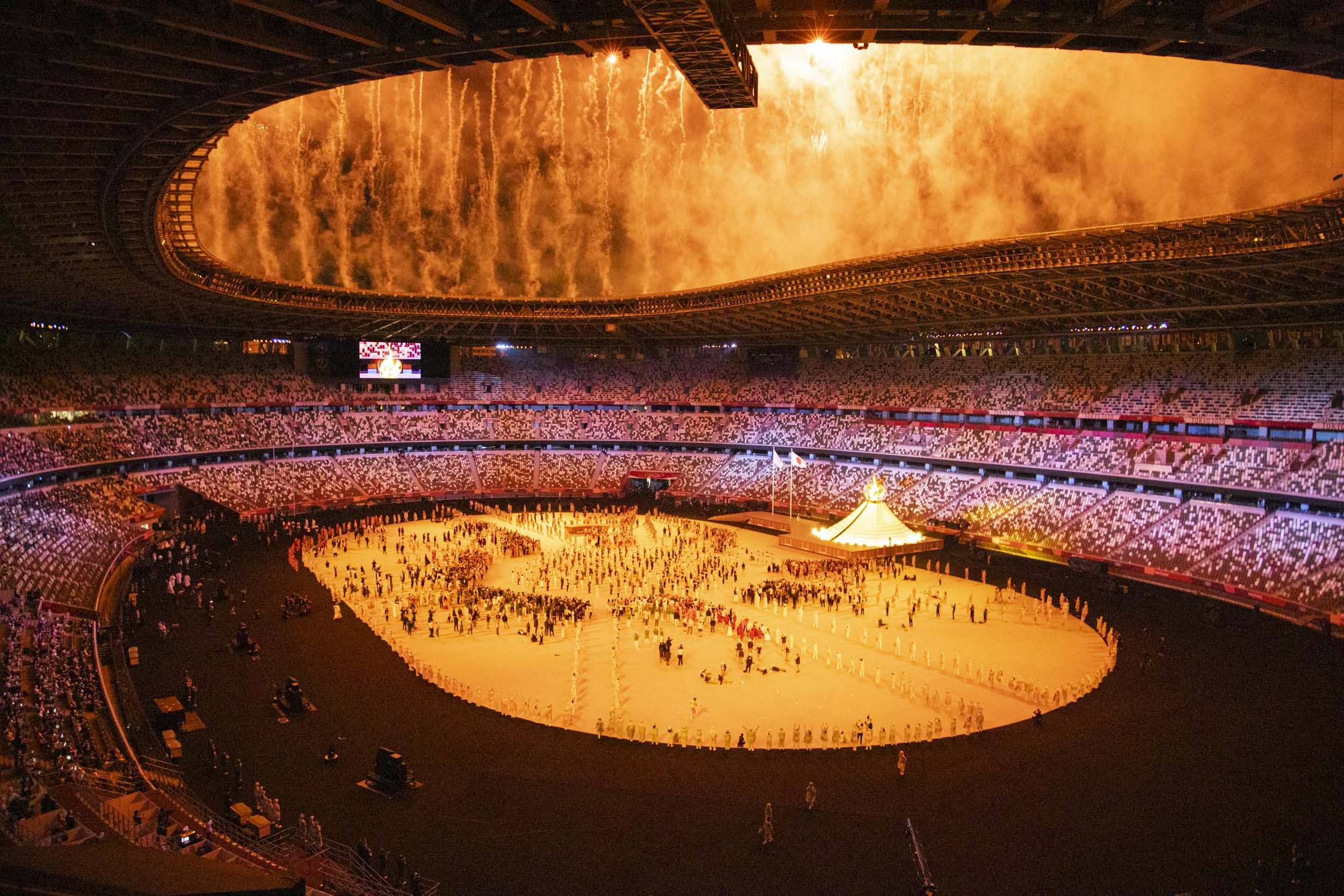The Olympics have long been documented on film, starting when cameramen recorded early 20th-century Games for posterity. It was German director Leni Riefenstahl, however, who was the first to elevate what had once been plodding newsreels of ceremonies and competitions into visual art with her 1938 two-part documentary about the 1936 Berlin Olympics, “Olympia.”
While celebrating Aryan beauty and grace to the delight of her Nazi employers, Riefenstahl also brought drama and excitement to her film of the Games, most notably in the sequences illustrating the triumphs of Black American track star Jesse Owens.
Now, Japanese director Naomi Kawase has produced another two-part documentary, this time on the 2020 Tokyo Olympic Games, which were held in 2021 after being postponed due to the COVID-19 pandemic. Similar to Riefenstahl, who never shook off her reputation as Adolf Hitler’s go-to director, Kawase has found herself embroiled in controversy. Not only has she been criticized as an apologist for the Tokyo Games, which were opposed by a large portion of the public angry about vast budget overruns and worried about the threat of mass coronavirus infections (that, fortunately, did not materialize), stories about her alleged ill-treatment of staff have appeared in Japanese and international media.



















With your current subscription plan you can comment on stories. However, before writing your first comment, please create a display name in the Profile section of your subscriber account page.